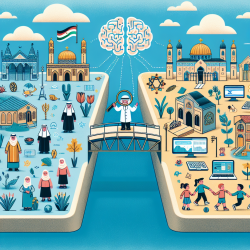In the dynamic field of postoperative care, understanding and improving patient recovery is paramount. The recent study on the "Validity and Reliability of the Iranian Version of the Quality of Recovery-40 Questionnaire" provides invaluable insights into assessing recovery quality in Iranian patients. This blog explores how practitioners can leverage these findings to enhance their skills and patient outcomes.
The Significance of QoR-40
The Quality of Recovery-40 (QoR-40) is a comprehensive tool that evaluates postoperative recovery across five dimensions: emotional state, physical comfort, patient support, physical independence, and pain. Originally developed in English, this instrument has been translated into various languages to cater to diverse populations. The recent translation into Persian marks a significant advancement for Iranian healthcare professionals.
Key Findings from the Research
- High Reliability: The study demonstrated high internal consistency for the Persian version of QoR-40, with Cronbach's alpha scores ranging from 0.89 to 0.93 across subscales.
- Strong Validity: The Persian QoR-40 showed strong concurrent validity with significant correlations between its subscales and comparable measures like SF-36.
- Factor Structure: Both exploratory and confirmatory factor analyses supported the five-component structure of the questionnaire, ensuring its conceptual equivalence to the original version.
Implications for Practitioners
The validation of the Persian QoR-40 provides practitioners with a robust tool to assess recovery quality in Iranian patients effectively. Here are some ways practitioners can use these insights:
- Enhanced Patient Assessment: Utilize the Persian QoR-40 to gain a comprehensive understanding of a patient's recovery process, allowing for tailored interventions.
- Improved Communication: Use insights from the questionnaire to facilitate better communication with patients about their recovery expectations and progress.
- Targeted Interventions: Identify specific areas where patients may need additional support or resources, such as emotional support or pain management strategies.
Encouraging Further Research
This study opens avenues for further research into postoperative recovery across different cultural contexts. Practitioners are encouraged to explore additional studies that examine recovery outcomes in diverse populations. Such research can lead to more inclusive healthcare practices that cater to varied patient needs globally.
To read the original research paper, please follow this link: Validity and Reliability of the Iranian Version of the Quality of Recovery-40 Questionnaire










